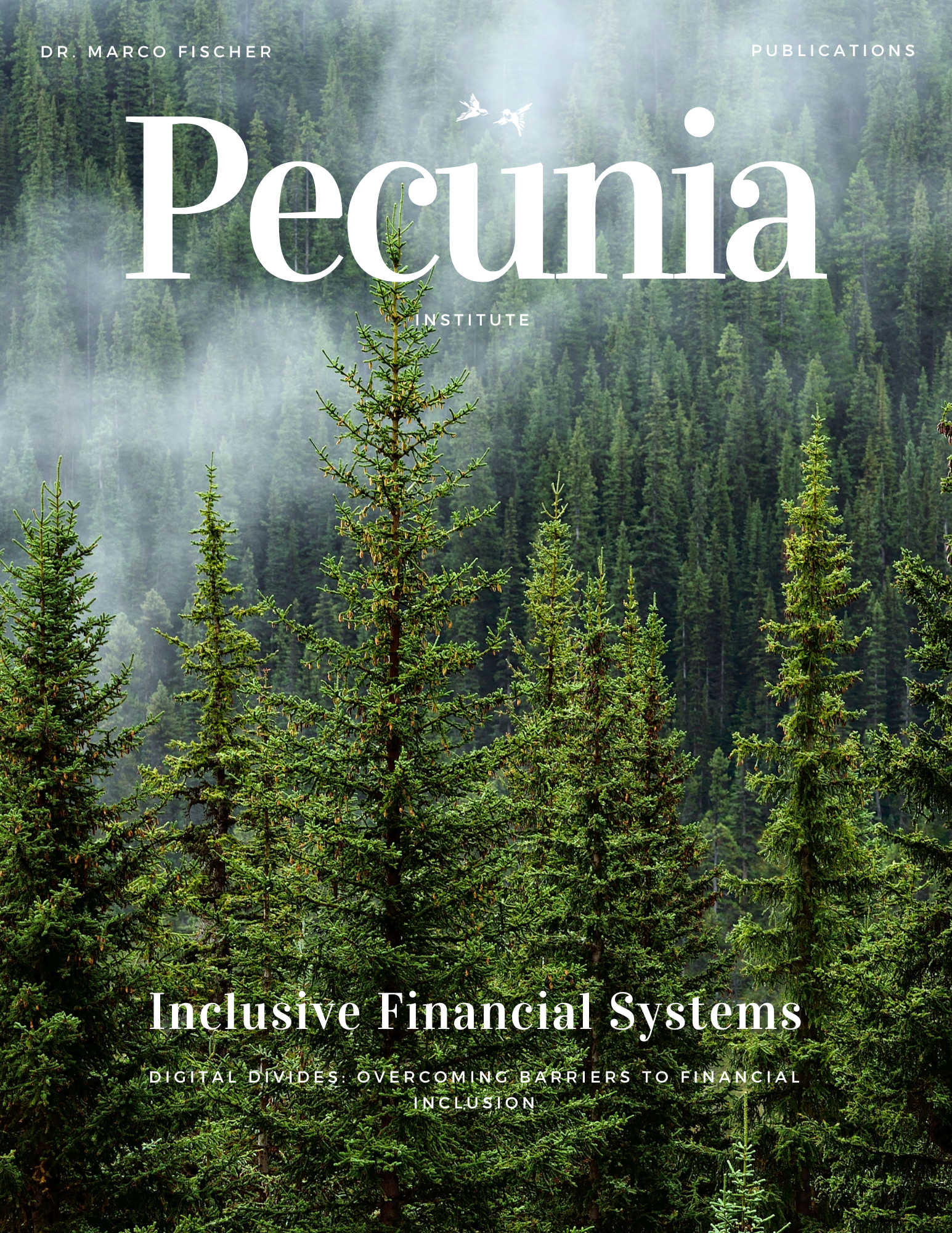
Carbon Credits and Environmental Finance
Analyzing the role of carbon credits in environmental finance and their impact on climate change mitigation.
Inclusive Financial Systems aim to ensure that everyone, regardless of their economic background, has access to essential financial services.
Inclusive Financial Systems

Talk to Dr. Marco Fischer about our research
At Pecunia, we recognize that access to financial services is a cornerstone of economic development and social equity. Our approach to creating inclusive financial systems involves removing barriers that prevent people from accessing financial services, such as high fees, lack of physical banking infrastructure, and complex product offerings that do not meet the needs of underserved populations.
A key initiative in our inclusive financial systems portfolio is the Microfinance for Women project in Southeast Asia. This project has equipped thousands of women with small loans and financial literacy training, enabling them to start and grow their own businesses. As a result, participants have reported a significant increase in their income levels, contributing to better living conditions and enhanced economic stability in their communities.
We collaborate with governments, non-profits, and private sector partners to enhance financial literacy and provide tailored financial products that are accessible to everyone. This includes initiatives like mobile banking solutions that reach remote areas, simplified banking procedures, and microfinance products that offer small but critical amounts of credit to those in need.
Our work also focuses on harnessing technology to create digital platforms that can offer financial services more efficiently and at lower costs. These platforms not only provide traditional banking services but also integrate innovative tools such as AI-driven financial advice, blockchain for transparency, and digital IDs for easier access.
This research paper explores the challenges and opportunities presented by digital financial services in reducing the global financial inclusion gap. It outlines strategic interventions that can make digital financial tools more accessible and user-friendly, particularly in developing economies.

Financial Literacy and Education: Enhancing the understanding of financial products and the principles of personal financial management among underserved populations.
Access to Banking Services: Extending traditional and digital banking services to those previously excluded.
Microfinance and Microcredit Solutions: Providing small loans to entrepreneurs and individuals who do not have access to conventional bank loans.
Digital Financial Services: Utilizing technology to deliver financial services more effectively and inclusively.
Financial Inclusion Metrics: Developing metrics to assess and improve the reach and effectiveness of financial services.
Gender and Minority Empowerment: Targeting financial services to empower specifically marginalized groups.
Related

Analyzing the role of carbon credits in environmental finance and their impact on climate change mitigation.

Exploring sustainable agriculture investments and their impact on food security and environmental sustainability.

Analyzing the impact of investing in women-led enterprises and promoting gender equality through finance.